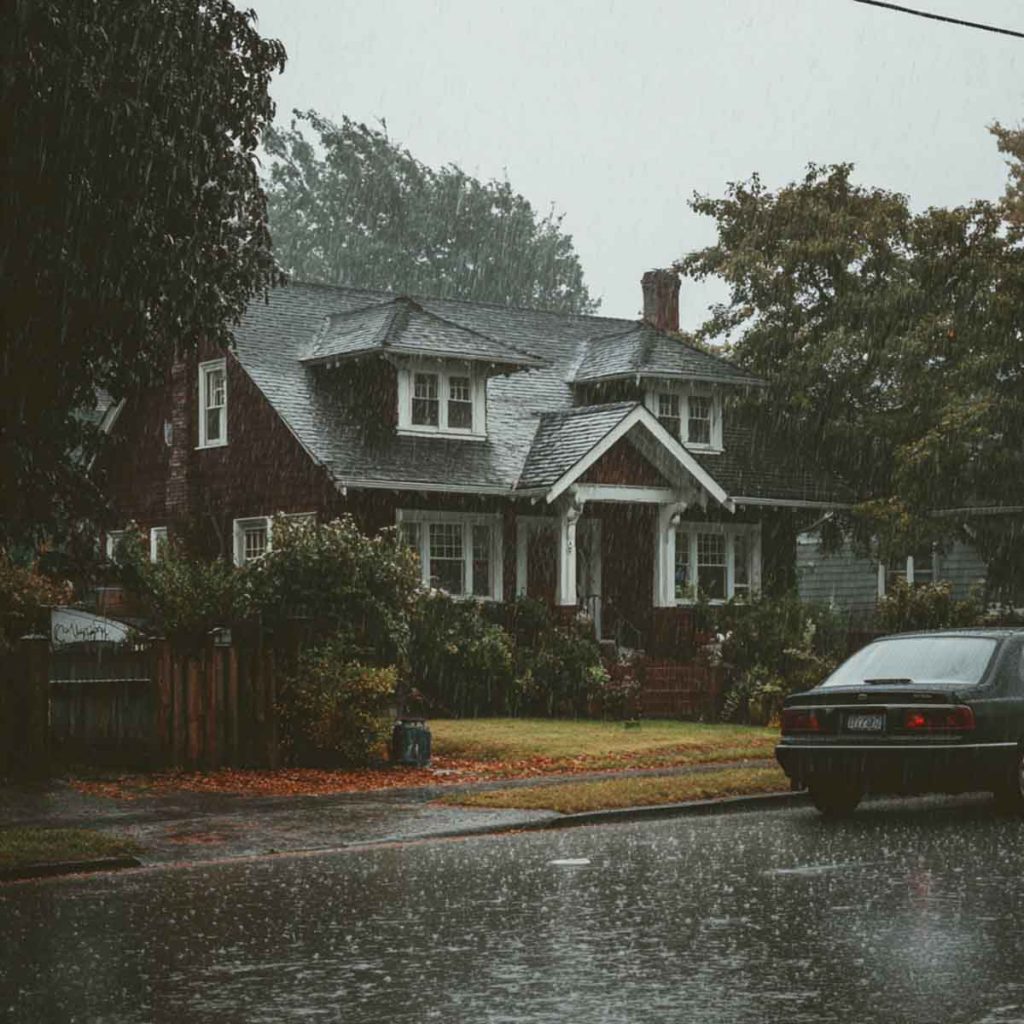If your air conditioner isn’t running after a recent storm — or you notice unusual sounds, smells, or higher energy bills — call today!
In St. Louis, we’re no strangers to severe weather. From heavy spring thunderstorms to late-summer heat waves that end with sudden downpours, our HVAC systems work hard year-round — and storms can quickly put them at risk.
At Thomas Hoffmann Air Conditioning & Heating, we frequently receive calls from homeowners whose air conditioners suddenly stop working or have issues after major weather events.

⚡ How Power Surges Damage Your Air Conditioner
Power surges are one of the most common — and sneaky — ways storms damage HVAC systems. When lightning strikes nearby power lines or utility poles, or when power is restored after an outage, a surge can send a sudden jolt of electricity through your home’s wiring. The jolt can:
- Burn out sensitive circuit boards inside your outdoor AC unit.
- Damage relays or capacitors that help start your compressor.
- Shorten the life of your entire HVAC system.
Tip: Installing a surge protector for your HVAC system (or a whole-house surge protector) is a smart investment that can prevent expensive repairs.
—————————————————————————————–
🌧️ Rain, Flooding & Standing Water Around Your AC
Heavy rain by itself typically won’t hurt your outdoor condenser. After all, these units are built to handle the elements. However, prolonged standing water around the base of your AC unit is a serious concern.
If your yard floods or drainage is poor, water can seep into electrical components, causing rust and corrosion over time.
Warning signs:
- AC won’t turn on after heavy rain.
- Tripping the circuit breaker.
- Strange buzzing or clicking noises.
If your system becomes partially submerged, turn off the power at the breaker and contact a professional immediately.
—————————————————————————————–
🧊 Hail & Wind-Borne Debris
We experience numerous hailstorms in the St. Louis area. Hail can dent the delicate aluminum fins around your condenser, restricting airflow and reducing efficiency. Flying branches or debris during high winds can also strike your unit, causing physical damage or clogging up the fan.
—————————————————————————————–
🚨 How to Protect Your AC Before & After Storms
Here are a few simple steps to minimize storm-related AC damage:
✅ Clear debris: Trim trees and bushes near your unit.
✅ Cover wisely: Use a breathable cover only during severe storms, then remove it right after. (Never leave a tarp on long-term — it traps moisture.)
✅ Turn it off: If severe lightning storms are forecast, consider turning off your AC at the thermostat and breaker.
✅ Schedule inspections: After major storms, a professional check can spot minor issues before they become costly failures.
—————————————————————————————–
🛠️ Concerned Your AC Was Damaged? We’re Here to Help.
If your air conditioner isn’t running after a recent storm — or you notice unusual sounds, smells, or higher energy bills — don’t wait. Electrical damage can worsen over time.
At Thomas Hoffmann Air Conditioning & Heating, we’re proud to be a locally owned and operated company, serving homeowners across St. Louis, Chesterfield, Ballwin, Kirkwood, and the surrounding areas. Unlike big national HVAC chains, we deliver personalized service and honest assessments you can trust.
24/7 Service Call Now
At Thomas Hoffmann Air Conditioning & Heating, we pride ourselves on being a locally owned and operated HVAC company. With more than 30 years of experience and a master technician and mechanical engineer as our owner, we can replace, repair, and maintain your business or home’s HVAC system.
